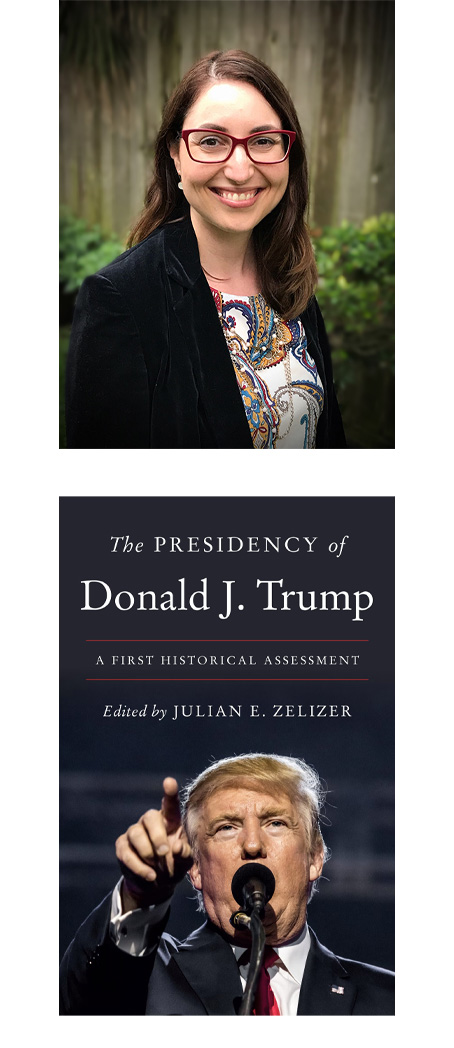
College of Liberal Arts and Social Sciences Associate Professor of History Leandra Zarnow was one of 18 historians asked to provide historical insight and perspective in the first draft of an overview of Trump’s presidency presenting original assessments of the key issues that shaped his time in office.
“The Presidency of Donald J. Trump: A First Historical Assessment,” gives voice to political struggles still faced, such as reactions to the 1619 Project, curbing global warming and the contested politics of abortion, while presenting a multifaceted perspective on one of the nation’s most divisive presidencies.
Zarnow was asked to contribute a first assessment of how women experienced the Trump years and their influence within his White House. “She offers a complicated and complex history of the former president's relationship to women's politics, starting with the protests that unfolded in 2017 through the emergence of a conservative women's Politico network at the highest levels of power,” Julian Zelizer, editor and Princeton University Professor of History and Public Affairs, said.
Zarnow highlights Trump’s sexism and its effect on feminist activism in a featured essay examining how gender operated throughout the Trump administration. She notes his presidency was one of the most historically significant moments of the 21st century because despite Trump’s overt womanizing, it triggered some of the strongest feminist actions in U.S. history.
Although women such as Vice President Kamala Harris prompt a broader look at political leadership and show a widening berth of accepting women in political roles of authority, Zarnow feels gender bias is still very prevalent. Even so, the slow pace of change is disconcerting.
“The Trump years have really demonstrated the level of resistance to the notion of women in political leadership,” Zarnow said. “It is clear that we do not have the political will for a madam president in the Unites States at this point.”
Historians typically like to wait at least 30 years before documenting how history was made, because there are always things unknown. However, with a president recorded having torn up presidential documents and recently in the news for withholding records from the National Archives, the “first draft” documented in this collection is all the more important.
Zarnow was also among the contributors who, in July 2021, had the unusual experience of sitting down with the former president on a Zoom call. There, he outlined his desired legacy and how it should be told by historians.
“To meet with almost 20 historians and interview a politician – on the record – for 45 minutes is a rarity in and of itself,” Zarnow said. “I think he wanted to get his point of view in on a lot of different things, and I think he just wanted to be heard. He did not talk about gender or women once, but it was important to be in the room.”